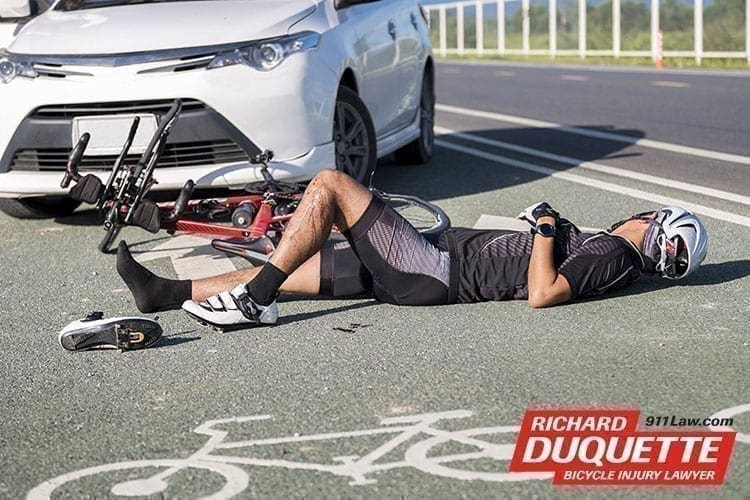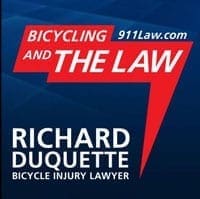You know the scene. You’re out on your bicycle and you come upon a downed rider, as a result of a bicycle crash, bicycle-car accident, dangerous roads or hit and run. There are only a few people standing around, the rest are riding by without offering assistance. Why don’t they stop to help? Chances are they are all afraid of the liability that supposedly comes along with being a Good Samaritan. But I have news for you: Good Samaritans are protected.
Historically, there have been no mandates in place that require passersby to help a fallen individual. In the past, if you did decide to help, you had to use “due care” or risk liability. There were also no laws against failing to assist a fallen individual; unless you were of some special relation to the individual, you couldn’t be punished for lack of action.
Currently, though, the law has changed due to recent legislation in California. Health and Safety Code Section 1799.102 says:
…no person, who in good faith (not for compensation) renders emergency medical or non-medical care at the scene of an emergency, shall be liable for civil damages resulting from an act or omission of a person…” It goes on to say that “…it is the intent of this legislation to encourage people to volunteer to assist others in an emergency, so long as the volunteer acts responsibly.
To sum it up: as long as you act responsibly in the course of assistance, you can help any downed bicyclist without fear of a lawsuit. You can render first aid and medical help, rescue, and even transport a person in peril as long as your actions are necessary to ensure the health and the safety of that person.
I spoke with a few local paramedics and they gave me the following tips when offering help:
- Find out if the person is breathing by watching their chest for motion.
- If they’re NOT breathing, give CPR, but only if you’re trained.
- Do NOT move the person or remove their helmet and/or clothing as they may have a spine injury, back injury or head injury.
- Tell the victim NOT to move.
- Call 911
- Guard the victim against oncoming motorists and other dangers (i.e. flag down traffic, etc.)
If you’re still anxious about helping an injured bicyclist, consider enrolling yourself in an emergency medical training program. Many local bicycle/triathlon clubs host programs like these, and the skills you learn are useful in a wide variety of situations both on and off the bicycling trail.
The attention you give to an injured bicyclist could be the difference between life and death. Always lend a responsible hand. With Good Samaritans on the road, no bicyclist will ever be left behind.
About the Law Firm of Richard L. Duquette
The Law Firm of Richard Duquette has recovered millions in damages for injured bicyclists since 1983. Attorney Duquette is an experienced bicyclist himself and has dedicated his practice to helping this community. He is experienced in all types of cases involving bicycle crashes, injuries, and other legal troubles.
Mr. Duquette serves a wide variety of bicyclists. Whether you prefer road cycling, mountain biking, track riding, Randonneuring, E-Bicycles, Handcycles, Century Rides, Triathlons, Duathlons, or Criterium, Mr. Duquette knows how to best serve your legal needs regardless of the type of bicyclist you are.
Mr. Duquette is an expert at maximizing, proving, and recovering damages.
For more information please visit the Law Firm of Richard Duquette.
The information in this article is for general information purposes only. The focus of this article is on California Law. You should contact an attorney in your state for case-specific advice, as details of the law and procedural requirements vary from state to state. Nothing in this article should be taken as legal advice for any individual case or situation. This information is not intended to create an attorney-client relationship; and the receipt, reading, listening, or viewing of this content shall not constitute an attorney-client relationship. Nothing in this article shall be construed as a warrant, promise, or guarantee about the outcome of your case or any other matter. This information may contain personal impressions or statements of opinion on a subject that do not apply in your case. Further, statements of law reflect the current state of the law at the time of writing and/or recording, and may not reflect subsequent changes in the law.













